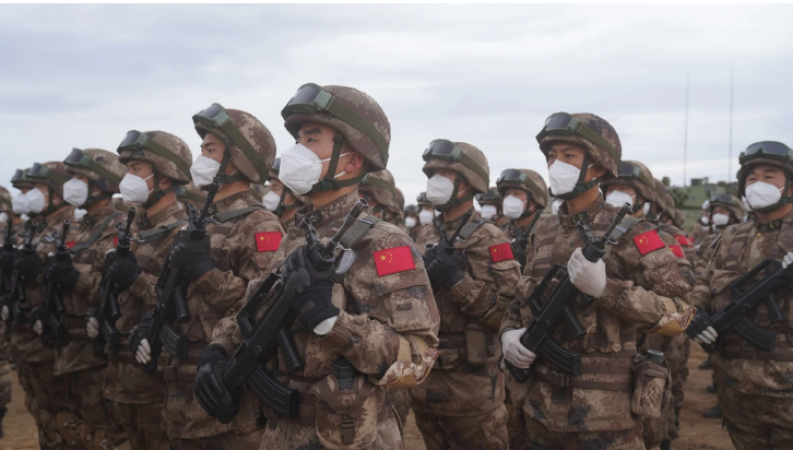
China: Uzbekistan's shocked government reversed plans earlier this month to deny its Karakalpakstan Autonomous Republic its constitutional right to secede, following violent civil unrest that killed at least 18 and injured thousands , and detained 500.
The peaceful protest was the latest example of civil conflict a traditionally stable region in Central Asia,
In May, deadly protests broke out in Tajikistan, and in January, the latter were dealt with by Russian troops at the request of the Kazakh authorities through the Moscow-led Collective Security Treaty Organization (CSTO).
Still, China's response to recent events in its western neighbor has been restrained. Despite strong investment interests in the region, particularly through the Belt and Road Initiative, Beijing has done little to promote stability.
China's infrastructure projects have been able to withstand geopolitical uncertainty.
"It's not that China doesn't like political instability: it's bad for them, it's bad for their investments, and they want stability because stability." is better." ,
But, at the same time, they're not going to go in and then bring or force that stability."
Egypt, where Chinese projects continued despite frequent regime changes from the government of the late President Hosni Mubarak to the current military-backed government of the Muslim Brotherhood's Mohamed Morsi and Abdel Fattah al-Sisi.
A stable Uzbekistan is important to China, not least because of the economic importance of the Central Asian country. According to official Uzbek data, China and Russia have been Uzbekistan's top two importers since 2016. The upcoming China-Kyrgyzstan-Uzbekistan Railway will provide a cheaper trading route and greater market access for the region.
Since 2016, China and Uzbekistan have been each other's "comprehensive strategic partners", recognizing common security interests such as not allowing any group to harm national security within their borders.
In response to the July unrest, however, Beijing only said it "heeded the situation in Uzbekistan" and relied on President Shavkat Mirziyoyev to keep his country stable. And, after more than a week of unrest, the Secretary-General of the Shanghai Cooperation Organization (SCO), the eight-member regional bloc that includes Uzbekistan, issued only a brief statement expressing support for government efforts to stabilize the situation. Chinese Ambassador to Uzbekistan Jiang Yan has not issued a statement.
According to Sana Hashmi, a visiting fellow at the Taiwan-Asia Exchange Foundation in Taipei, who studied the SCO, the low-key response was in line with China's long-standing principle of non-intervention.
"Especially under the SCO and with bilateral relations, they always say that there is no interference in the internal affairs of countries, and in particular, these protests are considered part of the country's internal affairs," she explained.
According to him, protests in Karakalpakstan were considered domestic politics.
According to Pantucci, a lack of experience in Central Asia and negative public perception of China also stymied Chinese intervention in Kazakhstan, similar to Russia's earlier this year.
Never before in the 30-year history of the CSTO did troops intervene to resolve conflicts in any other member state.
"Given the level of public hostility towards China in many parts of the region, the presence of Chinese troops is likely to worsen the situation," he said. "And I believe that both the [Uzbek] government and the Chinese government recognize this."
While Beijing is the leader of the SCO, a Eurasian economic and security organization whose security mandate is to combat the "three evil forces" of terrorism, separatism and extremism, practical concerns will prevent it from sending troops under the mechanism.
The need to establish a quadrilateral counter-terrorism cooperation and coordination mechanism among Afghanistan, China, Pakistan and Tajikistan in 2016 expressed distrust in the SCO as a security organization when most of its members were already members of the bloc.
Turkmenistan,Uzbekistan intensifying their energy cooperation
Uzbek journalist charged in connection with unrest in Karakalpakstan